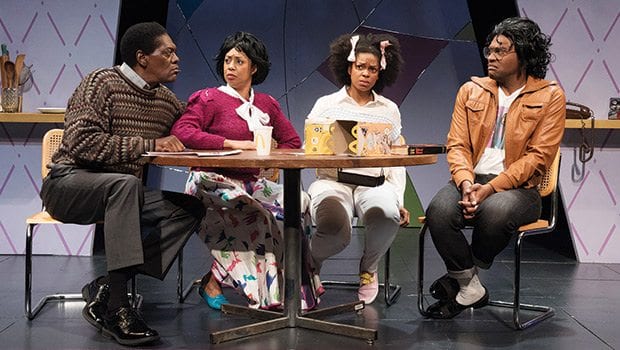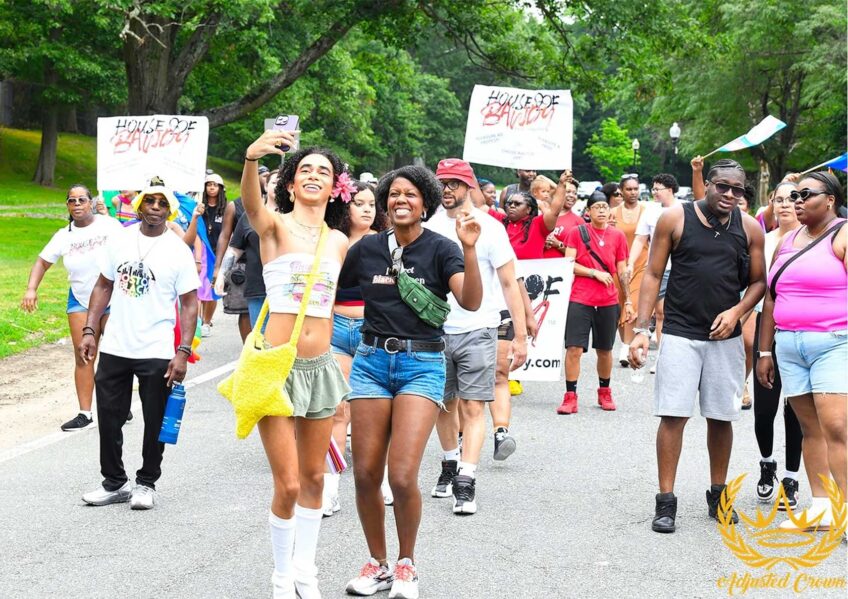

Author: Photo: Glenn Perry PhotographyMaurice Emmanuel Parent and Tiffany Nicole Greene in “Bootycandy.”
Robert O’Hara’s “Bootycandy,” playing at SpeakEasy Stage Company through April 9, strikes a rare harmony between cultural criticism and entertainment. The New England premiere of this groundbreaking production reveals the playwright’s experience growing up black and gay in a series of loosely connected vignettes.
This is not an easy play to watch. It’s intimate, uncomfortable and important. But as O’Hara makes clear, art is not about being comfortable. It’s about putting the audience in a difficult position, forcing them to confront challenging situations. In an interview with SpeakEasy, O’Hara said, “I think one of my mottos that I always say is ‘Everyone is welcome, and no one is safe.’ And it’s because I want everyone to feel like they’re a part of the story and a part of the journey, but at the same time, you can be indicted by what you’re either laughing at, or by what you don’t get, or by what is offensive to you.” The content oscillates from a sassy, cross-dressing minister preaching tolerance in a pair of glitter platform pumps to a dark rape and suicide that confronts the vengeful feelings of oppressed groups.
The power of O’Hara’s writing comes through in its accessibility. In one scene a teenage boy tells his parents about a man who has been following him home. His parents berate him, insisting he must have enticed the man in some way. They comment on his clothes, his attitude, blaming any straws they can grasp for the strange behavior.

Author: Photo: Glenn Perry PhotographyJohnny Lee Davenport as Reverend Benson.
This victim-blaming mindset hit home for me as a woman, and unfortunately is a theme many minority audience members can relate to.
Johnny Lee Davenport, Jackie Davis, Tiffany Nichole Greene, John Kuntz and Maurice Emmanuel Parent comprise the cast, playing multiple roles throughout the show. The cast handle rapidly changing roles and plotlines remarkably well. Davenport morphs effortlessly from a conservative father to a technologically challenged grandmother, adding humor to difficult topics without losing the scene’s believability.
In one scene a collection of black writers has been assembled for a panel at a conference. The white mediator probes into their work, asking what it’s like to be African American and how their experience as a person of color has impacted their work. The panelists insist that their art isn’t defined by their skin color but the mediator, like so many lurking online commenters, can’t get past his own tangled web of political correctness and intellectual biases.
Bootycandy is about personal experiences, but it’s not a niche play. The themes of fragility, violence, judgment, and community resonate with all walks of life. As the writers in O’Hara’s conference scene protest, this isn’t a story about being black; it’s a story about being human.







